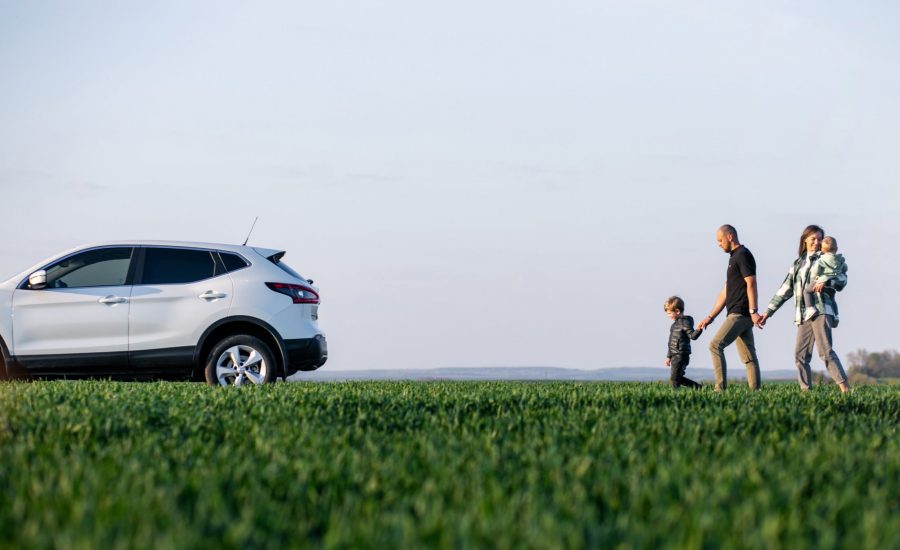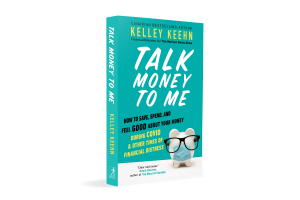How not to overspend on your next car
Taking the time to research the options online, and arriving at the dealership in the right (not hangry) frame of mind can save your family thousands. Here's how to do it.
Advertisement
Taking the time to research the options online, and arriving at the dealership in the right (not hangry) frame of mind can save your family thousands. Here's how to do it.

| Melissa’s SUV | Dave’s SUV | Notes | |
| Down payment | $10,000 | $10,000 | They both put $10,000 down, and only at the end of signing the financing papers did Michael say that the monthly amount would be “slightly more” than the $600 they had budgeted. |
| Monthly financing cost | $650 a month for 6 years | $625 a month for 5.5 years | |
| Subtotal | $46,800 | $41,250 | They both bought similar SUVs, but Melissa’s was a bit more expensive. |
| Total | $88,050 Decided upon in under two hours. |
 This is an excerpt from Talk Money to Me: How to Spend, Save and Feel Good About Your Money During COVID and Other Times of Financial Distress (Simon & Schuster Canada), by financial educator and award-winning author Kelley Keehn. To read her solutions for Dave and Melissa, and much more, pick up a copy of the book!
This is an excerpt from Talk Money to Me: How to Spend, Save and Feel Good About Your Money During COVID and Other Times of Financial Distress (Simon & Schuster Canada), by financial educator and award-winning author Kelley Keehn. To read her solutions for Dave and Melissa, and much more, pick up a copy of the book!
Share this article Share on Facebook Share on Twitter Share on Linkedin Share on Reddit Share on Email
“terrible winter driving conditions in Alberta” in and around Calgary? – not in my experience. I find the conditions no worse than those in Montreal, Ottawa and Toronto where I have also experienced winter driving. In some ways, Toronto can be worse with more sleet and ice.
Reliability is a key factor, so regular maintenance and use of the proper tires are crucial. But the conditions themselves are not unusual compared to other Canadian cities that experience a cold winter.
Melissa and Dave did not consider what their actual vehicle requirements were before proceeding to make the buying decision. If one is not clear about the requirements, the purchase can be terribly wrong – not just expensive, but wrong.
Wow, what ever happened to buying a good used car with JUST CASH! It seems that it’s a given that we made st always be in debt! Learn money management!
I’d like a perspective on buying a car and paying for it with cash. Can you influence the overall price by doing it this . We will be in the market latter this year.
Great tips above can save one a lot of $$ on a new vehicle purchase.
Biggest problem at the outset was that they bought BRAND NEW. They could have saved a whack of money by buying used.
Just bought a 2020 car with 1100 kms I did much research online before negotiating. We, also, went to car lots after hours and on weekends when there were no salespersons as we did not want to be pressured. Found the car we wanted and determined the amount we would pay. Negotiated the “out the door price” (no additional costs for taxes, administration, etc.). Decided to pay cash to save interest charges. Even after the deal, just before giving the cheque, we were pressured to take an ‘extended warranty’, ‘ undercoating’. We declined. I am proud since we got the car for what I determined would be the final price. The key is to not need the car. Five ears ago, I was able to get a a 1.5 year old car through an estate sale. The person who died owed the bank $27,000 ; I offered $11,500 cash. Although I was asked for more, I said I didn’t need the car (as we didn’t). After 5 days, I was called and told my offer was accepted.
Pay off the loan sooner?? Why??
In financing interest is taken first & principal later..big mistake ever to pay off a loan sooner